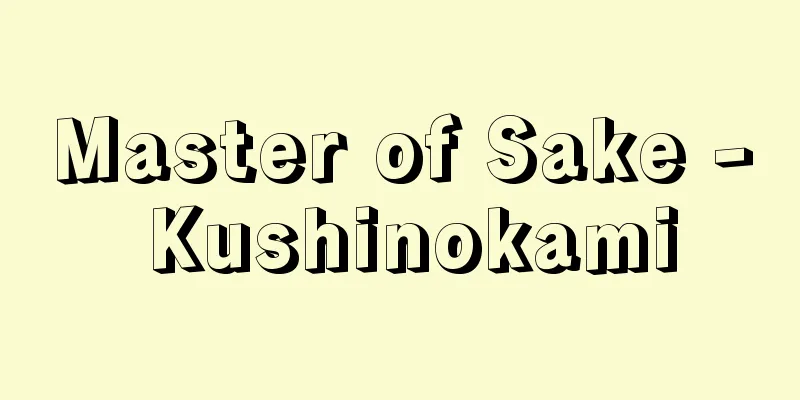Johann Heinrich von Thünen

|
German agricultural economist. Born to a farming family in Oldenburg, northwest Germany. He entered the University of Göttingen in 1803 but dropped out. He studied under the agronomist A. D. Ther, who advocated scientific farming, but was critical of his advocacy of rotational agriculture everywhere. In 1809, he started farming in the Mecklenburg region of northeastern Germany, and in the following year, he acquired the Terrow Farm near the port city of Rostock in the same region. Based on his experience on this farm, he used the isolationist method, which isolates and examines only certain elements, and mathematical techniques such as differential calculus to conduct research, resulting in his major work, Der isolierte Staat in Beziehung auf Landwirtschaft und Nationalökonomie (1826-63), which is considered a classic of agricultural economics. In 1830, he was awarded the honorary title of Doctor of Philosophy by the University of Rostock for this book. Der isolierte Staat in Beziehung auf Landwirtschaft und Nationalökonomie (The Isolated Country) consists of three parts, and the theory developed in the first part (published in 1826) was a pioneer in the theory of agricultural location. In particular, he argued that the agricultural management organization that raises the highest rent varies depending on the distance from the city as the market for agricultural products, and that under the assumption of a homogeneous plain, the so-called Thünen ring is formed in a concentric shape, and developed the theory of differential rent for location. In the first part of Part II of The Isolated Country (published in 1850), he hypothesized two classes: capital owners and workers, and argued that workers should receive not only the wages necessary to maintain their livelihood, but also the profits that correspond to the capital goods provided by them, and developed the theory of the natural wage. He also proposed the theory of marginal productivity in the same book, stating that interest and wages are determined by the productive power of the capital and labor finally invested, respectively, and is considered one of the founders of marginal analysis. His theory has been criticized for confusing rent with profit, for taking the position of Junker, and for the utopian premise of the natural wage theory. However, he is highly regarded as a researcher who had a great influence on the development of modern economics and agricultural economics, including those of A. Marshall, as well as on the theory of agricultural location and residential location. [Kiyoshi Nakajima] "Kondo Yasuo's translation of "Isolated Country" (included in "Kondo Yasuo's Collected Works Volume 1", 1974, Rural Culture Association)" Source: Shogakukan Encyclopedia Nipponica About Encyclopedia Nipponica Information | Legend |
|
ドイツの農業経済学者。西北ドイツのオルデンブルクの農場主の家に生まれる。1803年にゲッティンゲン大学に入学したが、中途退学した。科学的農法を説く農学者A・D・テーアにも師事したが、あらゆる場所で輪栽式農業を提唱することには批判的であった。 1809年に東北ドイツのメクレンブルク地方で農業を開始、翌10年、同地方の港湾都市ロストック近傍にテロー農場を入手した。この農場での経験を基礎に、特定の要素だけを取り出して考察する孤立化的方法と、微分学をはじめとする数学的手法を駆使して研究した成果が、農業経済学の古典とされる主著『孤立国』Der isolierte Staat in Beziehung auf Landwirtschaft und Nationalökonomie(1826~63)である。30年にはこの書によって、ロストック大学から哲学博士の名誉称号を授与された。『孤立国』は三部からなり、第一部(1826刊)で展開されている理論は、農業立地論の先駆けをなすものである。とくに、農産物市場としての都市からの距離に応じて最高地代をあげる農業経営組織が異なり、均質平野の前提のもとではいわゆるチューネン環が同心円状に形成されることを論じ、位置の差額地代論を発展させた。また、『孤立国』第二部第一編(1850刊)では、資本所有者と労働者の二階級を想定し、労働者が生活維持に必要な賃金額だけではなく、資本財の提供者として、それに見合う利益を受け取るよう主張し、自然賃金論を展開した。さらに彼は同書で、利子・賃金はそれぞれ最後に投下した資本・労働の生産力によって決定されるとして、限界生産力説を打ち出し、限界分析の創設者の1人とされている。彼の理論に対しては、地代と利潤との混同がみられること、ユンカーの立場にたっていること、自然賃金論の前提がユートピア的であること、などの批判がなされている。しかし他方で、A・マーシャルをはじめとする近代経済学および農業経済学、さらには農業立地論・住宅立地論の発展に大きな影響を及ぼした研究者として、高く評価されている。 [中島 清] 『近藤康男訳『孤立国』(『近藤康男著作集 第一巻』所収・1974・農山漁村文化協会)』 出典 小学館 日本大百科全書(ニッポニカ)日本大百科全書(ニッポニカ)について 情報 | 凡例 |
<<: Chu nom - Chu no m (English spelling)
>>: Tunic - tunic (English spelling)
Recommend
King's College Chapel
…The town is centered around the Roman road Bridg...
Commentary on the Direct Study Records - Chokusai Shorokukaidai (English) Zhizhai shu-lu jie-ti
Annotated bibliography of the Southern Song Dynast...
Fasting - Danjiki
Fasting means abstaining from all or a specific t...
L'homme armé (English spelling) Lhommearme
...The second type of cantus melody is part of th...
AE Camera - AE Camera
...The method of electrically measuring the brigh...
Lotus Zen
?-? A Chinese poet from the late Heian period. Bo...
General average - General average
Damages and expenses incurred by dispositions mad...
Lagerstroemia amabilis
…[Yoshishige Tachibana]. … *Some of the terminolo...
Honeyeater (nectar-sucking) - Honeyeater (English spelling)
A general term for birds of the family Meliphagida...
General consumption tax - Ippanshohizei (English spelling) General consumption tax
In a broad sense, it is a type of indirect tax th...
Heavenly Cloth Weaver - Amanohataorime
…Susanoo threw a skinned horse from the roof of t...
Asian Development Bank (English name)
ADB is an international regional financial instit...
Gameunsa Temple Site - Kamunsa-ji (English spelling)
A temple site from the Unified Silla period in Yon...
Orchestra - Gakudan
A band is a musical group that plays music togethe...
Kyoto Patrol Team - Kyoto Patrol Team
In 1864, the Edo Shogunate organized the group to ...









